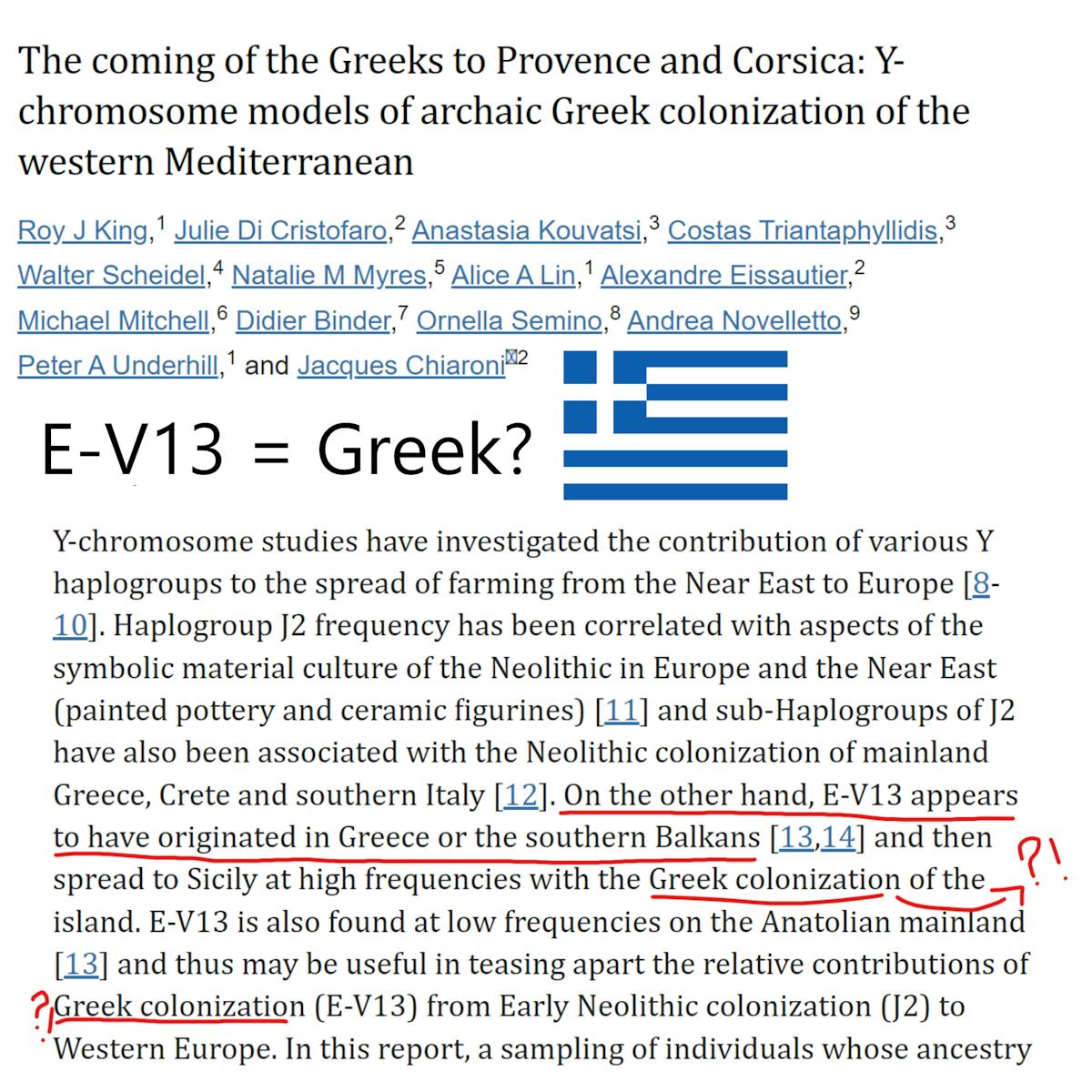Debunking E-V13 originating from the Ancient Greeks
 Arberian 10/05/2024
Arberian 10/05/2024 
This old article suggested E-V13 originated in Greece, but it's from a time period when there were no ancient DNA studies. There have been found no E-V13 samples anywhere in Mycenaean Greece. 1.2.3.
The Southern Arch of Lazaridis (2022) says that E-V13 wasn't found in Geographical Greece Haplogroup E-V13(476) is an important Southeast European Y-chromosomal lineage, wellrepresented in present-day people of the Balkans.(467, 477-479) Its estimated TMRCA of 4,800 is most consistent with the inference that this represents a Bronze Age expansion(478) rather than Paleolithic/Neolithic expansions as previously proposed. In the ancient data it is only detected (in the Southern Arc) in the Iron Age with four examples at Kapitan Andreevo in Bulgaria (1100-500 BCE) and one from Sv Kriz in Croatia (I5724; 382-206 calBCE). These samples also belong to downstream clades E-Z1057 and E-CTS1273 (with a TRMCA of 4,500 years). Later examples are found in Late Antique and Medieval Spain(449) and Italy(436, 453), while we also find it in Hellenistic and Roman samples from Bulgaria and in a pair of brothers (500-700 CE) from Byzantine Nicaea in Turkey. Its absence in Bronze Age southeastern Europe (n=107) is in remarkable contrast with its ubiquity in the present day, leading us to hypothesize that either it did exist there prior to our sampling but in a specific region from which we have no samples or it arose elsewhere and migrated to southeastern Europe just prior to the earliest sampled individuals. The parent node of E-V13 is E-L618 which is called for an earlier sample from the Lengyel culture in Hungary which was ancestral for the V13 SNP (I1900 4797-4619 calBCE; E-L618(xE-BY64249,E-V13)) and which has an estimated TMRCA of 7,800 years BP. Thus, the evidence appears consistent with a scenario in which E-L618 Y-chromosomes entered Europe during the Neolithic and EV13 representing a remarkably successful lineage within this group that had not yet achieved prominence during the Bronze Age, but had begun to do so by the Iron Age.
Conclusion: there's no single Ancient Greek haplogroup that was found having E-V13 therefore E-V13 cannot be of ancient Greek origin.

About Arberian
An Albanian, interested in history and genetics.